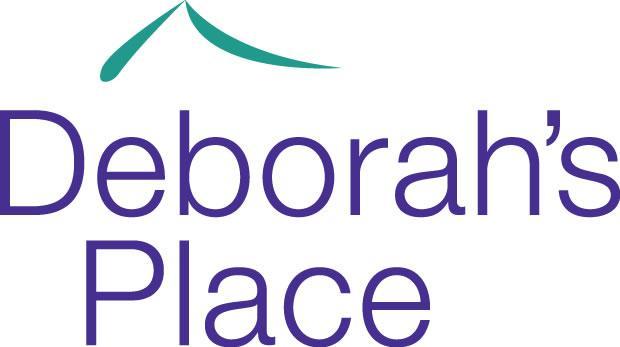Causes: Civil Rights, Homeless & Housing, Homeless Centers, Housing & Shelter, Housing Development, Construction & Management, Human Services, Women, Womens Rights
Mission: Deborah’s Place opens doors of opportunity for women who are homeless in Chicago. Supportive housing and services offer women their key to healing, achieving their goals and moving on from the experience of homelessness.
Results: We were founded in 1985 by a group of women with means and connections to address what they saw as a great need in the Chicago community, a need to serve unaccompanied women experiencing homelessness. Deborah’s Place started out humbly as an overnight shelter in a church basement. Over the years, the organization evolved as the needs of the population changed. With two program locations and more than 100 units of housing across the city, Deborah’s Place is now the largest provider of permanent supportive housing in Chicago exclusively for unaccompanied women. We serve nearly 400 women a year with the goal that once a woman comes to Deborah’s Place, she will never be homeless again. Unaccompanied women experiencing homelessness are still an underserved population that is growing, despite declines in homelessness overall. Without the support of our donors, we could not face the future with hope that we can continue to make a difference in the lives of women and help them achieve their goals and greater self-determination.
Target demographics: Deborah’s Place served unaccompanied adult women who are homeless or at risk of homelessness. We specialize in reaching unaccompanied adult women who are considered by the system to be the “hardest to house” and who represent 43 percent of Chicago’s single homeless population. Demographic Characteristics:75% African American17% Caucasian67% between ages 41-60Age range: 20-80Situational Characteristics:59% experience chronic homelessness92% live with a disability 70% live with a mental illness40% experience chemical dependence30% are victims of domestic violence
Direct beneficiaries per year: 388 women; 97% of supportive housing residents maintained their housing or relocated to stable housing; 68 new women moved into Deborah's Place from streets and shelters; 93% of supportive housing residents maintained or increased their income
Geographic areas served: Deborah’s Place serves women throughout the City of Chicago with locations in the East Garfield Park, Old Town, and Lakeview neighborhoods.
Programs: We achieve our mission through a unique model that weaves together supportive housing with a menu of voluntary, evidence-based services. We deliver these services in an intentional environment that recognizes each woman’s strengths and abilities and fosters a sense of belonging and community. The Deborah’s Place model has evolved over 35 years, using external research and internal data to develop and deliver effective programs and services. We know that women who experience chronic homelessness can overcome complex barriers to housing, health and stability when they have what they need to be successful – access to affordable and appropriate housing, adequate healthcare, regular income and positive social supports. Deborah’s Place serves nearly 400 women annually through outreach, housing and support services, including:Supportive HousingResearch has proven that providing safe, secure housing is the most effective approach to ending homelessness. Housing is paired with intensive case management and other services that guide participants to stability and health. Our Housing First approach means that we work with those who are most in need, accepting them as they are and helping them to become the best they can be. Harm ReductionHarm Reduction is an approach that is used to reduce harm and improve quality of life. When applying harm reduction, our team “meets participants where they are at” and works to understand the behaviors that may be placing them at risk of harm. While usually applied to substance use, our staff members apply harm reduction to help participants empower themselves to reduce their risks in all areas of their lives. In addition, we believe that housing is a right and that a person’s housing should not be based on their abstinence from substances. Trauma Informed CareAt Deborah’s Place we recognize that many of our participants have experienced high levels of trauma due to the experience of homelessness alone. To ensure that we are knowledgeable, staff members receive training on trauma and its impact on those we serve. Using this knowledge, we create programming that is responsive to participants’ needs and supports control and choice. In addition, we work to promote physical and emotional safety throughout all of our housing programs.
Mission: Deborah’s Place opens doors of opportunity for women who are homeless in Chicago. Supportive housing and services offer women their key to healing, achieving their goals and moving on from the experience of homelessness.
Results: We were founded in 1985 by a group of women with means and connections to address what they saw as a great need in the Chicago community, a need to serve unaccompanied women experiencing homelessness. Deborah’s Place started out humbly as an overnight shelter in a church basement. Over the years, the organization evolved as the needs of the population changed. With two program locations and more than 100 units of housing across the city, Deborah’s Place is now the largest provider of permanent supportive housing in Chicago exclusively for unaccompanied women. We serve nearly 400 women a year with the goal that once a woman comes to Deborah’s Place, she will never be homeless again. Unaccompanied women experiencing homelessness are still an underserved population that is growing, despite declines in homelessness overall. Without the support of our donors, we could not face the future with hope that we can continue to make a difference in the lives of women and help them achieve their goals and greater self-determination.
Target demographics: Deborah’s Place served unaccompanied adult women who are homeless or at risk of homelessness. We specialize in reaching unaccompanied adult women who are considered by the system to be the “hardest to house” and who represent 43 percent of Chicago’s single homeless population. Demographic Characteristics:75% African American17% Caucasian67% between ages 41-60Age range: 20-80Situational Characteristics:59% experience chronic homelessness92% live with a disability 70% live with a mental illness40% experience chemical dependence30% are victims of domestic violence
Direct beneficiaries per year: 388 women; 97% of supportive housing residents maintained their housing or relocated to stable housing; 68 new women moved into Deborah's Place from streets and shelters; 93% of supportive housing residents maintained or increased their income
Geographic areas served: Deborah’s Place serves women throughout the City of Chicago with locations in the East Garfield Park, Old Town, and Lakeview neighborhoods.
Programs: We achieve our mission through a unique model that weaves together supportive housing with a menu of voluntary, evidence-based services. We deliver these services in an intentional environment that recognizes each woman’s strengths and abilities and fosters a sense of belonging and community. The Deborah’s Place model has evolved over 35 years, using external research and internal data to develop and deliver effective programs and services. We know that women who experience chronic homelessness can overcome complex barriers to housing, health and stability when they have what they need to be successful – access to affordable and appropriate housing, adequate healthcare, regular income and positive social supports. Deborah’s Place serves nearly 400 women annually through outreach, housing and support services, including:Supportive HousingResearch has proven that providing safe, secure housing is the most effective approach to ending homelessness. Housing is paired with intensive case management and other services that guide participants to stability and health. Our Housing First approach means that we work with those who are most in need, accepting them as they are and helping them to become the best they can be. Harm ReductionHarm Reduction is an approach that is used to reduce harm and improve quality of life. When applying harm reduction, our team “meets participants where they are at” and works to understand the behaviors that may be placing them at risk of harm. While usually applied to substance use, our staff members apply harm reduction to help participants empower themselves to reduce their risks in all areas of their lives. In addition, we believe that housing is a right and that a person’s housing should not be based on their abstinence from substances. Trauma Informed CareAt Deborah’s Place we recognize that many of our participants have experienced high levels of trauma due to the experience of homelessness alone. To ensure that we are knowledgeable, staff members receive training on trauma and its impact on those we serve. Using this knowledge, we create programming that is responsive to participants’ needs and supports control and choice. In addition, we work to promote physical and emotional safety throughout all of our housing programs.

Civil Rights
Chicago

















































